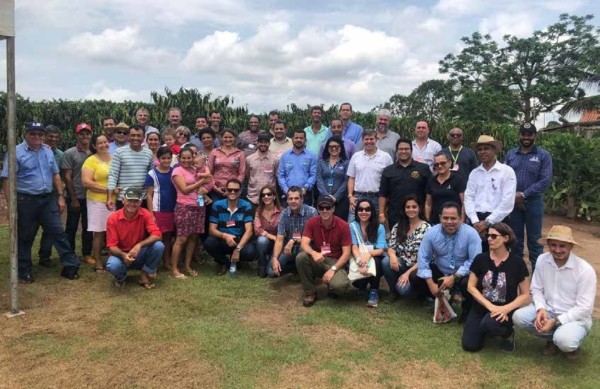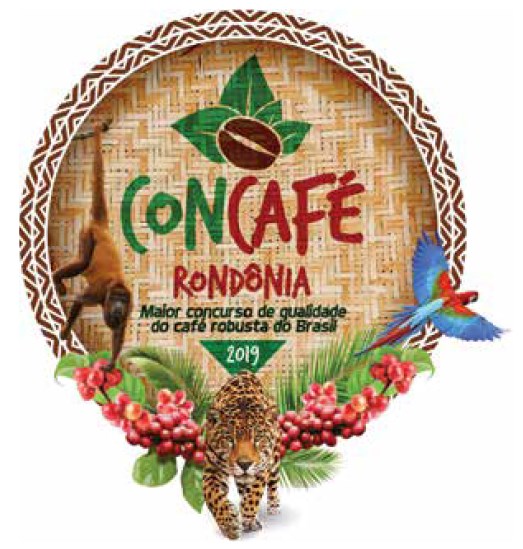
Better agronomic processes—allied to higher care in coffee quality and environmental conservation—have yielded effects on coffee production in recent years and raised the state of Rondonia to the level of the major coffee producers in the country. This is particularly true for the Conilon variety, which best adapted to the local soil. Coffee production is increasing each year and there is growing demand from farmers to invest in coffee growing. In line with this movement, the “Amazon Robusta Mission” was held in the last week of September and attended by the participants of the Brazil Workgroup of the Brazil Coffee Sustainability Platform. The event comprised workshops of the Geographical Indication Project, presentation of the Strategic Plan for Matas de Rondonia – the Amazon Robusta Coffee Region, and the 4th edition of the Rondonia Coffee Quality and Sustainability Contest (Concafé), which had a 260% increase in the number of participants.


Worth noting, Cecafé is active member and extremely active participant in directing discussions of the Global Platform Workgroup concerning the Responsible Use of Pesticides, especially in subjects such as Maximum Waste Limits, use of Personal Protective Equipment for Handlers and return of Empty Agrochemical Pesticide Packaging. Several activities were carried out, including fieldwork in rural properties and in the Suruí Indian village, with the support of Emater Rondonia, where issues related to coffee production sustainability and quality were discussed, particularly those concerning management and physiology, irrigation, and use of pesticides.
Several representatives, including the specialty, instant, roasted and ground coffee industries and coffee exporters from Brazil took active part in the discussions and workshops. Other entities such as representatives of Brazil’s Technical Assistance Agencies for the coffee sector also contributed to meetings.
With increased world demand for specialty, that is, better quality coffees, windows of opportunity are emerging for the Brazilian Arabica, Robusta and Conilon coffees. The results generated in projects for genetic improvement of Robusta populations subsidized the request for registration of the Amazon Robusta brand by Embrapa Rondonia at the National Institute of Intellectual Property (INPI). Simultaneously, the National Network of Innovation and Productivity (RENAPI), connected to the Brazilian Agency for Industrial Development (ABDI) is requesting the INPI for Geographical Indication (GI) of the main Rondonia region producing Amazon Robusta coffees. The likely trade name will be based on the terroir “Matas de Rondonia”. The Geographical Indication, succinctly, aims to support actions to improve the quality of Robusta coffee in the region as well as create an identity of its own thanks to local coffee growing peculiarities and cultural and geographical aspects. To further consolidate Cecafé’s reputation, its Social Responsibility and Sustainability area has been participating and supporting these events.


Concafé has allowed Rondonia coffee farmers to think far beyond their properties. With government support and technical assistance from Emater-RO, many have been striving for production quality and results have surpassed expectations. Attention and care when sampling samples is noteworthy. A total of 306 samples were collected, including 50 from women producers. The indigenous community was also represented—nine submissions come from indigenous producers of the Aruá ethnic group in the municipality of Alta Floresta and from the Suruí in Cacoal.
 In these four years of Concafé, Rondonia coffee gained national projection, allowing Rondonia coffee growers to take part in internationally recognized contests and even win some of them, such as the Coffee of The Year, which elects the best coffees in Brazil.
In these four years of Concafé, Rondonia coffee gained national projection, allowing Rondonia coffee growers to take part in internationally recognized contests and even win some of them, such as the Coffee of The Year, which elects the best coffees in Brazil.
Janderson Dalazen, Technical Advisor to the Rondonia State Department of Agriculture and Q Robusta Grader expert was one of the judges who analyzed the coffee samples. Also responsible for the event, he says the contest is very important for Brazilian coffee, and considered the largest event focused on the quality and sustainability of Robusta coffee in Brazil. He stresses that audits are conducted in the finalist properties to continue the rigor and criteria for determining winners and maintaining Concafé quality standards.
In the opinion of State Secretary of Agriculture, Evandro Padovani, Cecafé is a great partner for the state of Rondonia. “We are very pleased with this initiative—it will certainly leverage our coffee growing and be beneficial to both institutions”.
The event counts on the partnership of the Technical Assistance and Rural Extension Company (Emater), the Agrosilvopastoril Sanitary Defense Agency of the State of Rondonia (Idaron), the Superintendence of Economic Development and Infrastructure (Sedi), Embrapa and Sebrae.
It is important to highlight that Cecafé acts as an important active member that fosters resultoriented debate and the consolidation of local partnerships to structure institutional projects and to encourage continuation of sustainability programs. The Informed Producer project is carried out In Rondonia in several areas and other new projects are being studied to promote Good Agricultural Practices.
Marcos Matos – CECAFÉ CEO
Lilian Vendrametto – CECAFÉ Sustainability Manager


Leave A Comment